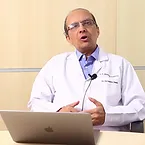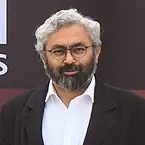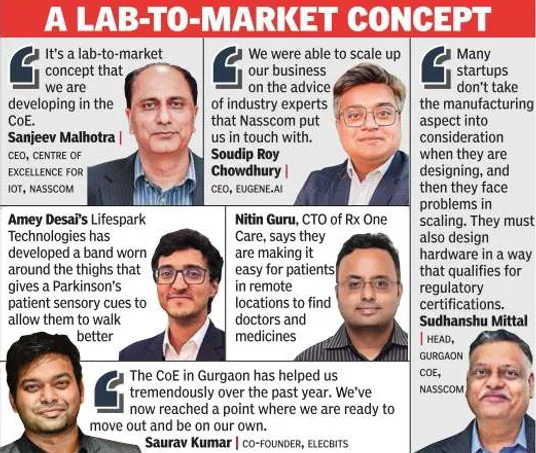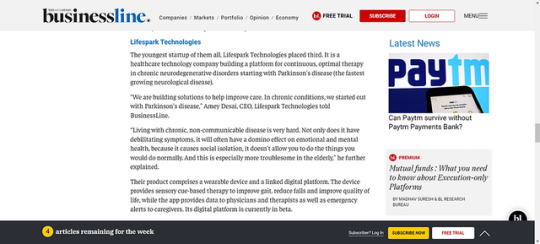#NeurologicalDisorders
Explore tagged Tumblr posts
Text
About Lifespark Technologies

Lifespark Technologies creates solutions for care in chronic neurological conditions such as Stroke, Parkinson's Disease . We are based at the Indian Institute of Technology - Bombay, India. Our solutions are designed for individuals, caregivers and the entire family; because these conditions don't just affect the lives of individuals.
Our solutions span the domains of AI/ML, medical devices, mobile applications and web applications. Lifespark Technologies aims to create the basic intelligence that will one day solve health issues at the earliest stage before they have damaging results. One day, a 60-year-old will look like today's 30-year-old.
Lifespark Technologies is among the top health-tech startups in the country and count many prominent business leaders and academics as our mentors. We have deployed our solutions in partnership with some of the largest healthcare organizations in India and are looking to establish ourselves as the go-to innovator globally.
Our Core Team Members :
CEO & Founder - Amey Desai

He has research experience in Machine Learning, Electronics, AI and their application in healthcare .
Research Head - Dr. Devendra Desai

Dr. Desai heads the research team at Lifespark. With extensive experience in research and over a hundred publications, Dr. Desai's skills and medical acumen are instrumental to the research at Lifespark .
Chief Scientific Advisor & Mentor - Dr. Samit Chakrabarty

Dr. Chakrabarty is our chief scientific advisor and mentor. His expertise in Neurophysiology and multidisciplinary research provide deep and meaningful insights into the research at Lifespark .
Our Partners :


Awards and Recognition :
Shark Tank Season 3
youtube
Times of India

Prosus SICA Award 3rd place Winner

National Bio Entrepreneurship Competition Winner

#ParkinsonsDisease#ParkinsonsCare#NeurologicalDisorders#NeuroRehabilitation#MovementDisorders#ParkinsonsAwareness#StrokeRecovery#ParkinsonsSupport#ParkinsonsResearch#PDWarriors#CareForParkinsons#WalkDevice#LifesparkTechnologies#HealthTech#NeuroCare#ChronicCareSolutions#InnovationInHealthcare#MedicalDevices#FutureOfHealth#IITBombay#IndianStartups#HealthcareInnovation#CaregiverSupport#DigitalHealth#Youtube
3 notes
·
View notes
Text
Start your own chai franchise with BGF – one of India’s fastest-growing tea brands! Get expert support, proven business models, and low investment options. Limited-time offer: Zero franchise fee for early sign-ups. Call us now at 9252212212 to grab this opportunity and be your own boss.
#NeurologyHospital#DelhiHealthcare#NeurologyCare#DelhiHospitals#BrainHealth#NeurologicalDisorders#TeamOfExperts#PatientCare#MentalHealth#Neuroscience#DelhiDoctors#BrainTreatment#ChronicConditions#NeurologySpecialist#TheBestInDelhi#HealthcareInnovation#MedicalExcellence#NerveHealth#PatientSuccessStories#AdvancedTreatment
0 notes
Text
🧠 ALS: The Disease That Silences the Body—But Not the Fight
• Fasciculations • Weak grip • Slurred speech • Breathing issues Lou Gehrig’s disease is rare, cruel, and still incurable—but science is closing in. ✨ Learn the early signs and latest hope: 🔗 https://revisiontown.com/unraveling-lou-gehrigs-disease-early-signs-treatment-advances-hope/

#ALSawareness#LouGehrigsDisease#TumblrHealth#NeurologicalDisorders#HopeForALS#Neurodegeneration#ALSfacts#RevisionTown#healtheducation#healthawareness#healthtips#world health organization
0 notes
Text
youtube
Walking Difficulty? I t’s Not Always a Leg Problem – Watch This! Dr. Pranjal Explains
Struggling to walk properly? Pain in legs, difficulty holding slippers, fatigue in feet? Many patients assume it’s a leg issue—but sometimes, the real problem lies in the spine or cervical region. Dr. Pranjal, Chief Neurosurgeon at NeuroMind TMS, shares a real-life case where patients tried everything—MRI, physiotherapy, supplements—but nothing worked… until a hidden tumor in the spine was discovered. If you or someone you know is experiencing similar symptoms, don’t ignore it. Consult a specialist before it turns into a serious condition.
#WalkingProblems#LegPain#SpineHealth#CervicalSpine#HiddenIllness#SpineTumor#NeurosurgeonAdvice#DrPranjalPandey#NeuroMindTMS#BackPainRelief#NeurologicalDisorders#HealthAwareness#MedicalDiagnosis#MovementDisorders#ClinicalExamination#SpinalCare#Youtube
1 note
·
View note
Text

🧠 Recognizing Symptoms of Neurological Disorders 🧠
Neurological disorders can affect the brain, spinal cord, and nerves, and understanding the symptoms is key to early diagnosis and treatment. At Svastha Emergency and Multi Speciality Hospital, we provide expert care for all neurological conditions. If you or a loved one experience any of these symptoms, don’t wait – early intervention can make a significant difference in treatment outcomes.
📞 Contact Us: 9044337799
📍 Visit Us at: Svastha Emergency and Multi Speciality Hospital, Mandapet
#NeurologicalDisorders#BrainHealth#SeizureAwareness#SvasthaHospital#Mandapet#HealthFirst#EarlyDiagnosis#NeuroCare#HealthyMind
0 notes
Link
#bioelectricmedicine#chronicpain#clinicaltrials#electricalsignals#electroacupuncture#inflammation#neurologicaldisorders#regenerativetherapy#TENS#vagusnervestimulation
0 notes
Text
Abnormal movements: Not always neurological!
Yes, there are causes of abnormal movements that are not neurological in origin. Although most movement disorders are linked to problems in the brain or nervous system, certain medical conditions and external factors can also cause involuntary movements.

Examples of non-neurological causes of abnormal movements
1. Medication: Some medications can have side effects that manifest themselves as abnormal movements.
2. Metabolic conditions ⚖️: Chemical imbalances in the body can also lead to movement disorders (e.g. hyperthyroidism).
3. Psychological disorders: Stress, anxiety or conversion can lead to abnormal movements. These are known as functional or psychogenic movement disorders.
4. General medical conditions ⚕️: Certain general medical conditions, such as infections, trauma or tumors, can indirectly affect the nervous system and cause abnormal movements.
5. Toxic factors ☢️: Exposure to certain toxic substances, such as heavy metals, can also lead to movement disorders.
Further tips to improve your walking
- Exercise regularly to strengthen your muscles and improve your balance. ️♀️
- Wear comfortable, well-fitting shoes.
- Use a cane or walker if you need support.
- Take care when walking on uneven or slippery surfaces.
- If you have vision problems, make sure you wear your glasses or contact lenses.
Conclusion
It's important to see a doctor if you have trouble walking. The doctor will be able to determine the cause of your walking problems and recommend the appropriate treatment.
Go further
#AnomalousMovements#Neurology#NeurologicalDisorders#Health#Well-Being#Non-NeurologicalCauses#Medications#MetabolicConditions#PsychologicalDisorders#GeneralMedicalConditions#ToxicFactors#Diagnosis#WalkingDisorders#Parkinson'sDisease#MapleSclerosis#Stroke#Ataxia#Dystonia#Arthrosis#Diabetes#Balance#PhysicalExercise#Advice
0 notes
Text
Robert F. Kennedy Jr. and His Battle with Spasmodic Dysphonia
If you’ve tuned into any of Robert F. Kennedy Jr.’s public engagements, you might have noticed a peculiar quiver in his voice. This characteristic is attributed to a rare neurological disorder called spasmodic dysphonia, which Kennedy has been living with for many years. “I experience a tremor in my voice, especially when I begin speaking,” Kennedy shared during an interview on The Diane Rehm…
CLICK PICTURE TO READ FULL ARTICLE
#botulinum toxin#Diane Rehm Show#health issues#neurological disorder#public speaking#Robert F. Kennedy Jr.#Senate Finance Committee#spasmodic dysphonia#vocal cords#voice treatment#SpeechDisorder#RobertFKennedyJr#SpasmodicDysphonia#NeurologicalDisorders#VoiceHealth#DysphoniaAwareness#HealthAdvocacy#BotoxTreatment#PublicSpeakingChallenges#VoiceTherapy#KennedyHearing#Health
0 notes
Text
Expert in Neurological Disorders - Dr. Su Jianfeng | 20+ Years of Experience
Dr. Su Jianfeng is a renowned neurologist in Singapore, specializing in stroke, epilepsy, Parkinson’s, Alzheimer’s, chronic headaches, and neurodegenerative conditions. He completed his MBBS at Capital Medical University, China, and is known for his patient-centered care and innovative treatment approaches, offering exceptional neurological care and improving patient outcomes.
Visit: https://justpaste.it/u/DrSuJianfeng
0 notes
Text
𝐓𝐡𝐞 𝐅𝐮𝐭𝐮𝐫𝐞 𝐨𝐟 𝐒𝐭𝐞𝐦 𝐂𝐞𝐥𝐥 𝐌𝐚𝐫𝐤𝐞𝐭 𝐢𝐧𝐝𝐮𝐬𝐭𝐫𝐲 (𝐋𝐚𝐭𝐞𝐬𝐭 𝐏𝐃𝐅)-IndustryARC™
The Stem Cell Market refers to the global industry focused on the research, development, production, and commercialization of products and therapies derived from stem cells. This market encompasses a wide range of applications, from regenerative medicine and drug discovery to tissue engineering and disease modeling. Stem cells are unique because they can develop into various specialized cell types and are capable of self-renewal, making them highly valuable in medical research and treatment.
🔗 𝑫𝒐𝒘𝒏𝒍𝒐𝒂𝒅 𝑺𝒂𝒎𝒑𝒍𝒆 𝑹𝒆𝒑𝒐𝒓𝒕
𝐊𝐞𝐲 𝐂𝐨𝐦𝐩𝐨𝐧𝐞𝐧𝐭𝐬 𝐨𝐟 𝐭𝐡𝐞 𝐒𝐭𝐞𝐦 𝐂𝐞𝐥𝐥 𝐌𝐚𝐫𝐤𝐞𝐭:
𝐓𝐲𝐩𝐞𝐬 𝐨𝐟 𝐒𝐭𝐞𝐦 𝐂𝐞𝐥𝐥𝐬:
Embryonic Stem Cells (ESCs): Derived from early-stage embryos and can differentiate into any cell type.
Adult Stem Cells: Found in specific tissues, such as bone marrow or adipose tissue, with a more limited differentiation potential.
Induced Pluripotent Stem Cells (iPSCs): Adult cells reprogrammed to behave like embryonic stem cells.
Hematopoietic Stem Cells (HSCs): Found in bone marrow and used in treatments for blood disorders.
Mesenchymal Stem Cells (MSCs): Found in bone marrow, fat, and other tissues, used in regenerative therapies.
𝐀𝐩𝐩𝐥𝐢𝐜𝐚𝐭𝐢𝐨𝐧𝐬:
Regenerative Medicine: Repairing or replacing damaged tissues and organs.
Drug Discovery and Testing: Using stem cells to model diseases and test drug efficacy.
Cancer Treatment: Stem cell transplants for blood cancers like leukemia.
Neurological Disorders: Potential therapies for conditions like Parkinson's or spinal cord injuries.
Tissue Engineering: Development of bioengineered tissues and organs.
Products and Services:
Stem cell therapies and transplants.
Research products, including reagents, kits, and culture systems.
Equipment for stem cell isolation, expansion, and storage.
Banking services for storing stem cells (e.g., cord blood banking).
𝐌𝐚𝐫𝐤𝐞𝐭 𝐃𝐫𝐢𝐯𝐞𝐫𝐬:
Growing prevalence of chronic and degenerative diseases.
Advancements in stem cell research and technology.
Increased funding from governments and private sectors.
Rising demand for personalized medicine.
𝐂𝐡𝐚𝐥𝐥𝐞𝐧𝐠𝐞𝐬:
Ethical concerns, particularly with embryonic stem cells.
High costs of research and therapies.
Regulatory hurdles and standards.
Limited awareness in developing regions.

#StemCells#RegenerativeMedicine#Biotech#Healthcare#MedicalResearch#iPSCs#MSC#ESCs#HematopoieticStemCells#StemCellTherapy#TissueEngineering#DrugDiscovery#PersonalizedMedicine#NeurologicalDisorders#CellTherapies
0 notes
Text
Go with your Gut: Optimizing Diet for PD Symptoms

Have you ever heard the phrase "trust your gut"? Well, it turns out that there's more truth to it than we might have thought.
Scientists have found that the gut interacts with the brain in intricate ways, causing significant changes in our mood. While it was earlier believed that anxiety and depression can cause constipation, nausea, and other gastrointestinal symptoms, recent studies have shown that an upset gut can in turn result in anxiety and depression as well.
Hippocrates once said, "Let food be thy medicine and medicine be thy food,” a sentiment that resonates strongly with our Indian traditions of Ayurveda. While diet alone can't replace medicines, it can certainly complement their effects, thanks to the intricate relationship between our gut and brain.
Several scientists are now exploring the impact of diet on PD symptoms. While no specific diet is a “PD diet”, there are dietary interventions that can address specific bothersome issues.
In general, research suggests that some aspects of a diet can alter the severity of the symptoms and their progression rate. The main suggestions that these studies have provided are as follows-
Fresh vegetables and fruits, nuts (walnuts, pistachios, etc.), fresh herbs and spices (turmeric, cumin, coriander, mustard seed, cloves, etc. ), coconut oil, and eggs seem to be associated with reduced symptom severity and reduced rate of progression of PD symptoms. A diet rich in fresh vegetables and fruits might be beneficial for all PD patients.
Dairy intake, canned fruits and vegetables, and fried food have all been seen to increase the rate of symptom progression in PD, and avoiding these might be beneficial.
Carbidopa-levodopa, the most common PD medication, is absorbed in the small intestine. If taken together with a high-protein meal, its effect can be minimized. In order to obtain its maximum benefits, it's recommended that you accompany it with a low-protein meal, and have your protein-rich foods like lentils (dal), kidney beans (rajma), eggs, or meat at other times of the day.
Additionally, certain symptoms can also be managed better with some tweaks in everyday diet, following are some suggestions that have been reported.
Constipation- Eating food high in fiber (fruits with peel, vegetables, and legumes) and drinking more fluids can help reduce constipation. Drinking warm fluids in the morning can be specifically beneficial.
Gastroparesis (stomach takes a long time to empty its content)- Avoiding large high-fat meals has been recommended.
Nausea- Small portions of meals can help avoid feeling full. Ginger candies or ginger tea can help reduce the symptoms as well.
Low blood pressure- Eating small meals frequently, increasing fluid intake, and decreasing dehydrating drinks like coffee and alcohol can be helpful.
Swallowing problems (coughing, choking or food feeling "stuck") - Dietary changes like softened food or food that stimulates swallowing (carbonated, sour, or seasoned food) can help. Eating slower or eating small bites can also help.
Sleep Problems- Melatonin-rich fruits such as pineapple, orange, and banana might be able to help improve sleep problems. However, these should be taken in moderation.
Cognitive dysfunction- Acute caffeine consumption helps improve performance in cognitive functions. Its consumption is recommended in the military ration.
Gait and Balance- Ensuring adequate protein intake to maintain muscle strength is recommended. Foods rich in B vitamins like whole grains, eggs, and lean meats might also be beneficial.
Some supplements are also said to be beneficial but there is still a lot unknown. Make sure to talk to your doctor before starting the use of any supplement. Supplements can have unnecessary side effects that can be avoided if they are approached with caution.
Although dietary changes can help improve symptoms and symptom progression, it is important to keep in mind that the diet has no “fit-all” rule. In case, changing a certain aspect of your diet aggregates a symptom, it is advisable to revert back to your normal diet and contact a health care professional.
If you are attempting to change your diet, remember to do so in moderation. Like Sant Kabir Das said "Ati ka bhala na bolna, ati ki bhali na chup. Ati ka bhala na barsna, ati ki bhali na dhup." Moderation is the key.
#ParkinsonsDiet#GutHealthAndPD#NutritionForParkinsons#DietAndParkinsons#PDWellness#HealthyEatingForPD#ParkinsonsCare#GutBrainConnection#HolisticParkinsonsCare#ParkinsonsAwareness#PDNutritionTips#DietOptimization#LifesparkTech#FoodForBrainHealth#ParkinsonsLifestyle#neurologicaldisorders#neurology#lifesparktechnologies
0 notes
Text
🧠 Motor Neuron Disease is a monster that steals movement — but not your mind.
Want to know how it starts? What it does? How doctors fight back? Read the full post on RevisionTown: 👉 https://revisiontown.com/motor-neuron-disease-mnd-causes-symptoms-treatment-guide/

0 notes
Text
Neurologist Doctor In Ghaziabad
Consult a leading neurologist doctor in Ghaziabad for comprehensive care of nervous system disorders. We specialize in treating epilepsy, Parkinson’s, strokes, and other neurological issues with the latest technology and a patient-first approach. Schedule your visit today for accurate diagnosis and treatment plans.
#Neurologist#DoctorInGhaziabad#BrainHealth#Neurology#HealthCare#MedicalExpert#NeurologicalDisorders#GhaziabadDoctors#HealthTips#MentalHealth#PatientCare#BrainAwareness#Wellness#HealthcareProfessional#MedicalAdvice#Neuroscience#GhaziabadHealth#NeuroTreatment#HealthSpecialist
0 notes
Text
Understanding ADHD and Narcolepsy: A Quick Overview

ADHD and narcolepsy are two different neurological disorders that have an impact on individual’s life in different parts of the world. ADHD is a condition that causes people to have difficulty with paying attention, control their movements, and act on impulse while narcolepsy is a sleep disorder that presents symptoms such as excessive daytime sleepiness, sleep paralysis, hallucinations and cataplexy. Nonetheless, both conditions are in some way, genetically and neurobiologically related. ADHD impairs the everyday activities and makes tasks and communication difficult whereas narcolepsy influences sleep and wakefulness. ADHD is usually treated by the use of drugs in combination with behavioral therapy while narcolepsy is treated by medication to reduce sleepiness and alteration of sleep habits.
Read more: Attention Deficit Hyperactivity Disorder (ADHD) And Narcolepsy
1 note
·
View note